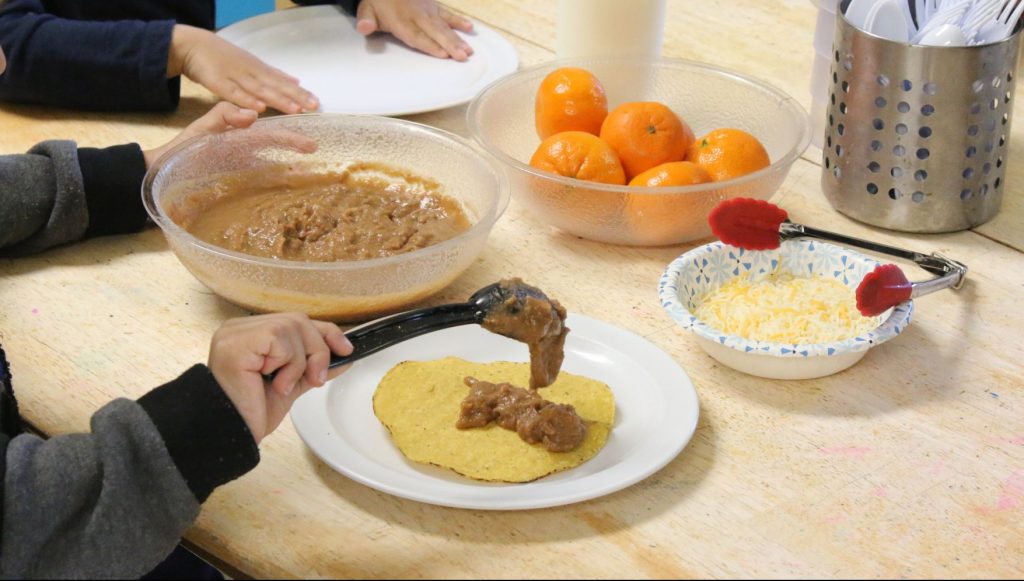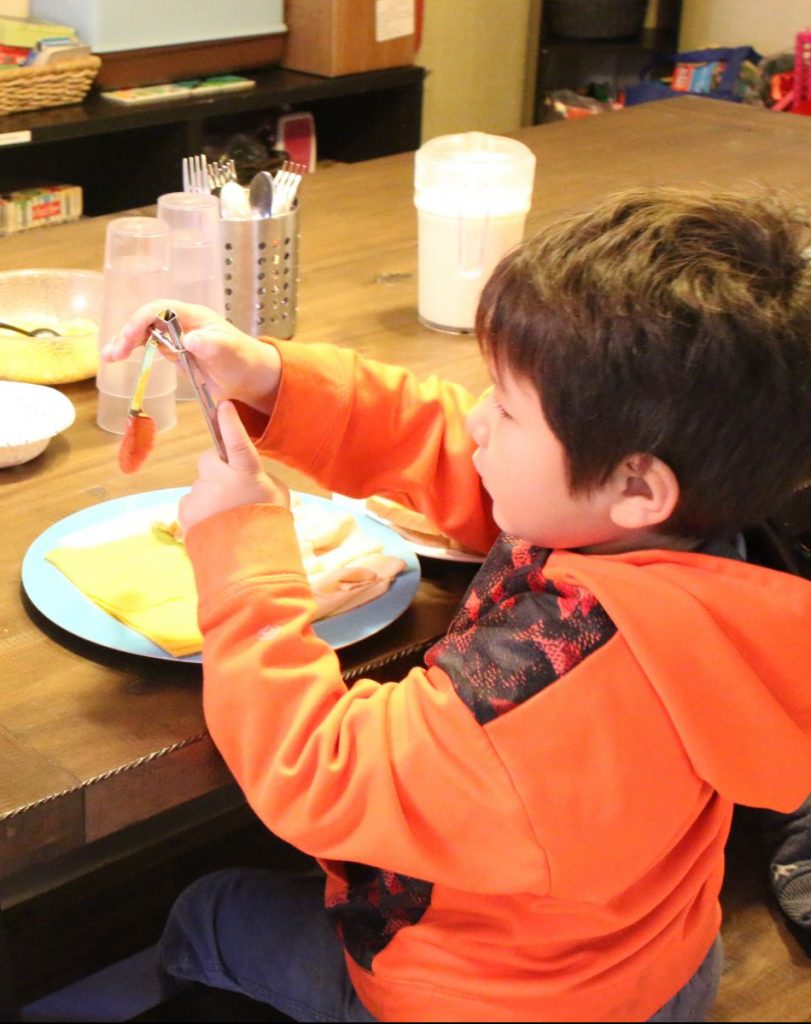March 16, 2020
National Nutrition Month – Teaching our kids about healthy eating
By Genevieve Pyeatt

Every March we observe National Nutrition Month, a time to reflect on the importance of a balanced diet and exercise. While many of us will look to make a few changes or work to bring a little more balance to our diet, a significantly different challenge exists for children, especially those from more economically challenged communities. With more than 16 million children in the United States facing hunger, it becomes a priority for support agencies to help fill the gap. While many families are facing “undernutrition,” on the other end of the scale we’re also seeing record numbers of children suffering from obesity. Recent studies have pointed to an U.S. obesity rate among children aged 7-18 that has nearly tripled (from 7% to 18%) over the last three decades.

Those organizations that care for our children play an important role in not only providing nutritious food to our kids, but in building healthy eating habits. A supportive mealtime environment is important for building and nurturing those healthy eating habits in children. One of the approaches we at CDI have taken to help create healthy eating habits, we provide Family Style Meal Service, which is a style of meal service that fosters healthy eating habits and positive attitudes toward food and eating. Family Style Meal Service allows children to be introduced to new foods and new tastes. Children also learn to share in group situations, practice communication skills, build positive mealtime behavior, and build motor skills. Family Style Meal Service is an opportunity for children to learn and practice these skills while enjoying their food with peers and their teacher.

In addition to Family Style Meal Service, we provide a positive feeding environment by incorporating The Division of Responsibility in Feeding trust philosophy during mealtime. When teachers take responsibility for their mealtime tasks and children are provided the environment to practice their own responsibilities, children are encouraged to learn the skills for successful eating and develop their eating competence. Some of these skills include learning to have a positive attitude toward eating, learn to eat the food they like while gradually experimenting with an unfamiliar food, and learn to listen to hunger cues.
The teacher’s role in The Division of Responsibility in Feeding includes providing snacks and meals that provide the nutrients necessary for the children’s growth and development. Meals and snacks are scheduled at consistent times each day. Meals and snacks are served family style with a staff member present at the table who is role modeling by eating the same foods as the children. The child’s role is to choose how much to eat and whether or not to eat a particular food. Children are never forced to eat or try new foods, instead children encouraged to try new foods and foods they don’t like.
When we build healthy eating habits in children, they learn how to make positive choices later in life. When we provide foundational support for kids in need of a nutritious meal, it better prepares them for success in school, with studying, in sports and other extracurricular activities. As a society we should strive for a time when no child goes hungry and when our kids learn what foods make them strong, energized and healthy. By working together – families, schools, support agencies and government – we can create a world where our children are both nourished and empowered by an understanding of how healthy eating can positively impact their lives.